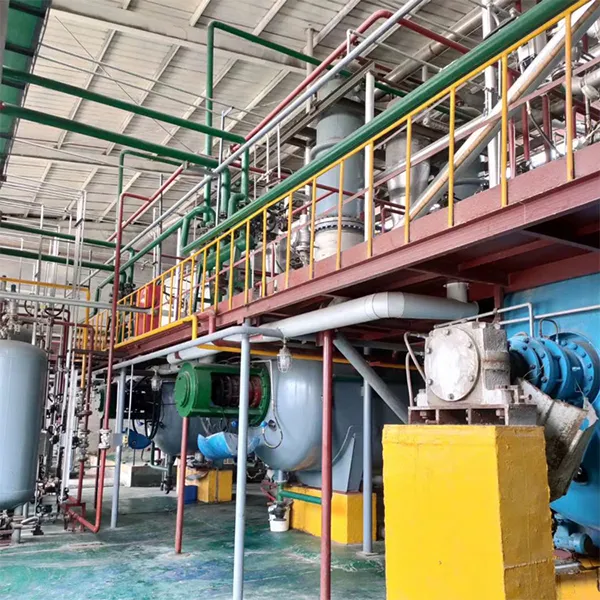Understanding RDP for Ceramic Tile Adhesives
In the realm of construction and interior design, the choice of materials can significantly influence the durability, aesthetics, and overall performance of installations. One such material that plays a crucial role in the effectiveness of ceramic tile adhesives is Redispersible Polymer Powder (RDP). RDP serves as a key additive that enhances the properties of adhesives, making them more suitable for various applications. In this article, we will delve into the significance, benefits, and applications of RDP in ceramic tile adhesives.
What is RDP?
Redispersible Polymer Powder (RDP) is a fine, white powder made from polymers that can be redispersed in water. These polymers are typically derived from a range of materials, including vinyl acetate, ethylene, and acrylates. RDP is widely used in construction materials because it improves the performance characteristics of the products it’s added to. When mixed with water, RDP forms a stable dispersion that provides enhanced adhesion, flexibility, and durability to adhesives.
The Role of RDP in Ceramic Tile Adhesives
Ceramic tile adhesives are formulated to bond tiles to various surfaces, including walls and floors. The main function of these adhesives is to ensure that tiles remain securely in place, even under the stress of thermal expansion, moisture, and other environmental factors. RDP enhances the performance of ceramic tile adhesives in several critical ways
1. Improved Adhesion One of the primary benefits of RDP is its ability to significantly improve the adhesion properties of ceramic tile adhesives. This is particularly important in challenging environments, such as high-humidity areas (like bathrooms and kitchens) and outdoor applications where tiles are exposed to changing weather conditions. RDP allows for a stronger bond between the adhesive and the tile, ensuring that they remain securely attached over time.
2. Flexibility and Crack Resistance Ceramic tiles are subject to movement due to temperature fluctuations, moisture changes, and structural shifts within buildings. RDP enhances the flexibility of tile adhesives, allowing them to accommodate these movements without cracking. This flexibility is vital for preventing failures in tile installations, which can lead to costly repairs and decreased aesthetic appeal.
3. Improved Workability Adhesives modified with RDP tend to have better workability, making them easier for applicators to spread and manipulate. The time taken for the adhesive to set can also be extended, allowing for adjustments during installation. This improved workability contributes to a more efficient installation process, saving both time and labor costs.
rdp for ceramic tile adhesive

4. Water Resistance RDP contributes to the water-resistant properties of tile adhesives. This is particularly beneficial in wet areas, as it minimizes the risk of water infiltration that can lead to mold growth and adhesive degradation. The incorporation of RDP helps ensure that the adhesive maintains its performance even in damp conditions.
5. Enhanced Durability The longevity of tiled surfaces largely depends on the quality of the adhesive used. RDP-modified adhesives offer enhanced durability, providing resistance to weathering, aging, and degradation. This durability translates into longer-lasting tile installations that require less maintenance over time.
Applications of RDP in Ceramic Tile Adhesives
RDP is employed in various formulations of ceramic tile adhesives, including thin-set mortars, premixed adhesives, and ready-to-use products. Its versatility makes it suitable for a wide range of applications, from residential projects to commercial installations. RDP is especially advantageous in scenarios where high-performance adhesives are necessary, such as
- Heavy Traffic Areas In commercial spaces, tiles are often subjected to heavy foot traffic. Utilizing RDP in the adhesive enhances the bond strength, ensuring the tiles remain intact over time.
- Wet Areas Bathrooms, kitchens, and swimming pools require adhesives that can withstand constant moisture exposure. RDP-modified adhesives offer the necessary water resistance for these environments.
- Exterior Applications For outdoor tiling projects, RDP helps combat the effects of weather conditions, providing a robust protective layer against rain, sun, and temperature changes.
Conclusion
In summary, Redispersible Polymer Powder (RDP) is an essential component in the formulation of high-quality ceramic tile adhesives. Its ability to enhance adhesion, flexibility, workability, and durability makes it an invaluable additive for ensuring optimal performance in various installations. By understanding the benefits and applications of RDP, contractors and builders can make informed choices that lead to successful and long-lasting tile projects. Emphasizing quality in adhesive formulation ultimately leads to satisfied clients and enduring installations.
-
Rdp Powder: Key Considerations for Wholesalers in the Building Materials IndustryNewsJul.08,2025
-
Key Considerations for Wholesalers: Navigating the World of Hpmc - Based ProductsNewsJul.08,2025
-
Hpmc Detergent: Key Considerations for WholesalersNewsJul.08,2025
-
Key Considerations for Wholesalers: China Hpmc For Tile Adhesive, Coating Additives, Concrete Additives, and MoreNewsJul.08,2025
-
Crucial Considerations for Wholesalers: Navigating the World of Construction MaterialsNewsJul.08,2025
-
Key Considerations for Wholesalers Sourcing Additive For Cement, Additive For Concrete, Additive For Putty from Additive Manufacturer Shijiazhuang Gaocheng District Yongfeng Cellulose Co., Ltd.NewsJul.08,2025




